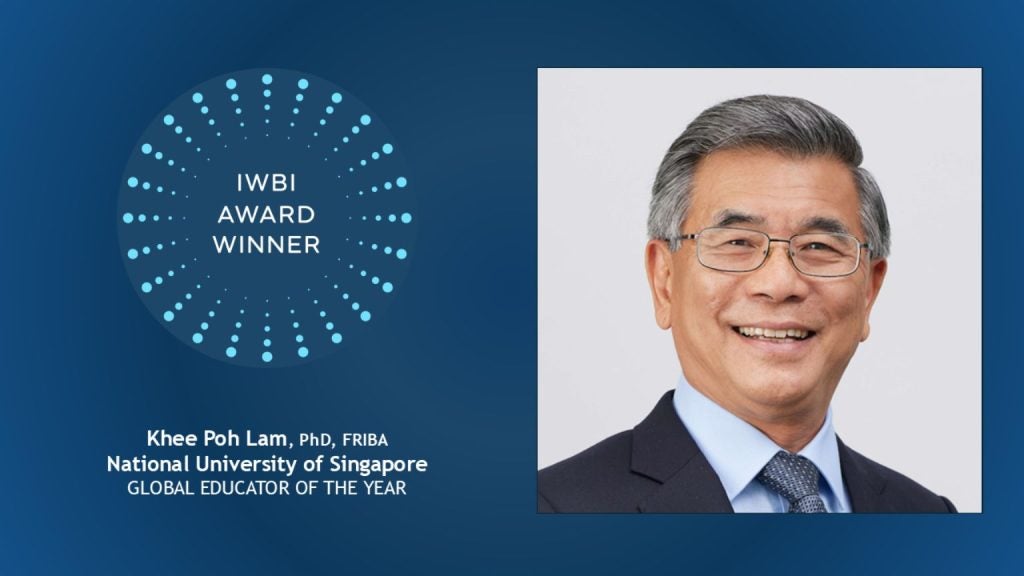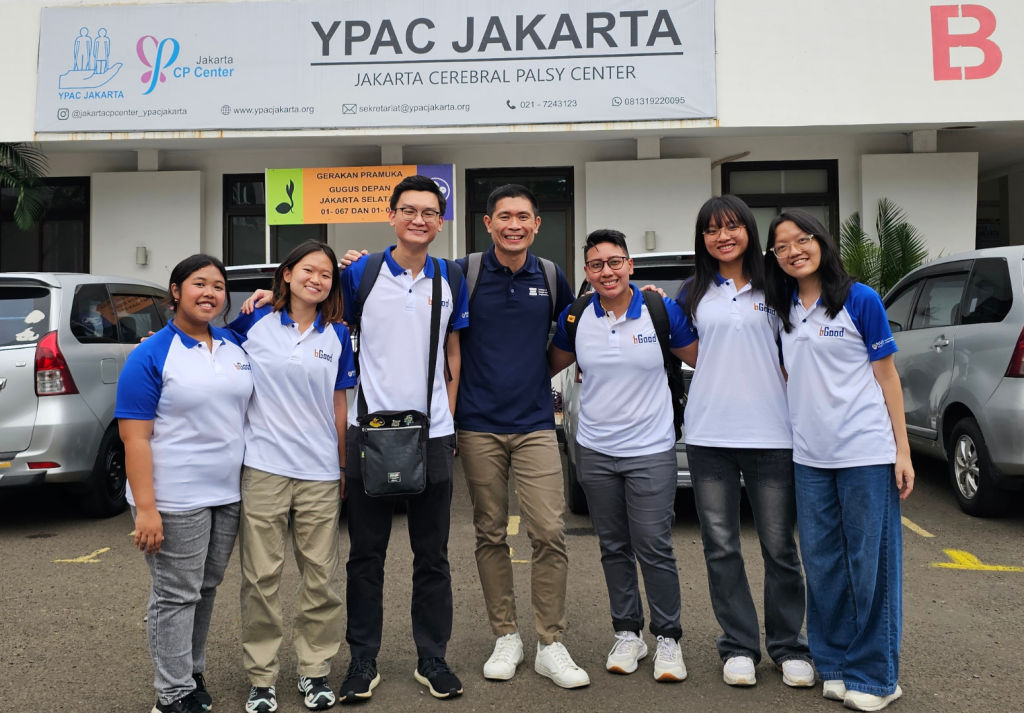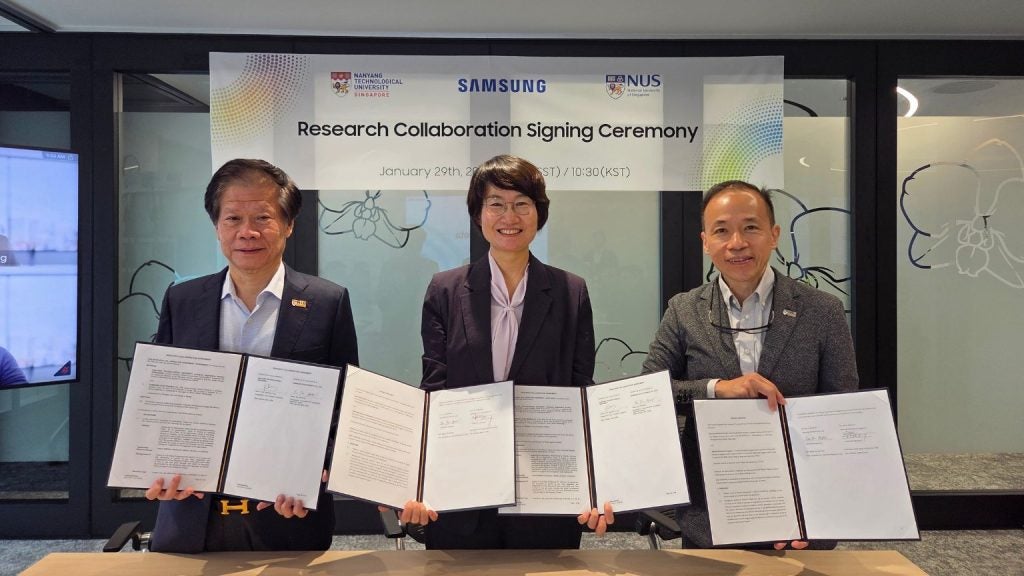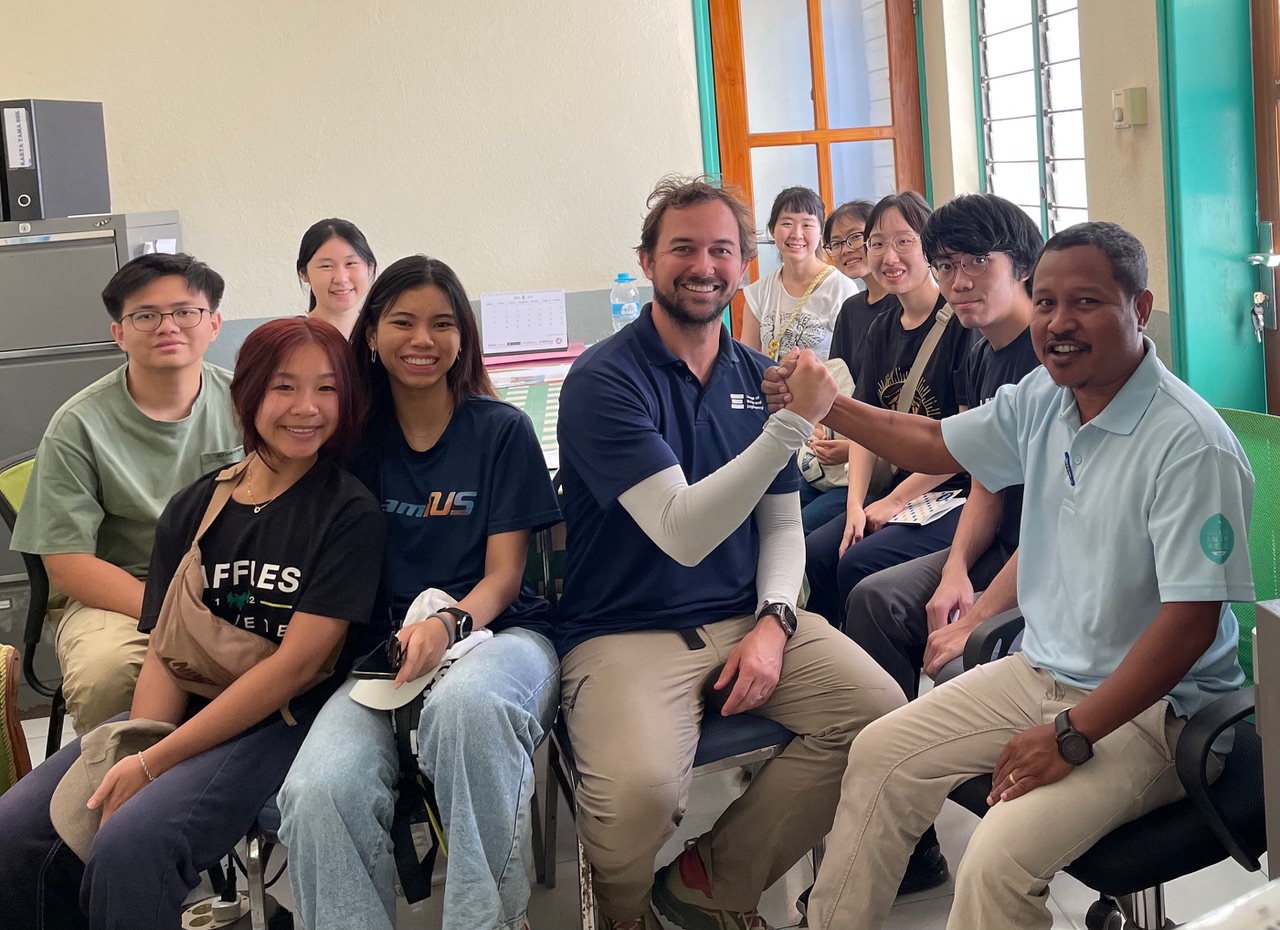
With students increasingly looking to make a global impact with their engineering skills, the College is coming up with programmes that enable students to apply what they learn. Expanding on the success of the bGood programme, bGlobal, spearheaded by Assistant Professor Andrew Holle, aims to give students the unique opportunity to see how healthcare is administered in resource-constrained countries.
Now in its second year running, the programme comprises an 11-day trip to Timor-Leste to dive deep into the country’s healthcare system and identify gaps that the students can potentially help fill. This year, eight students embarked on the trip along with Asst Prof Holle, Associate Professor Alberto Corrias and Dr Mark Chong. By working with partners on the ground, the team hopes to seize these opportunities to make a difference and value-add to the country’s healthcare system.
One such partner is Maluk Timor, an NGO based in Dili that partners with the Timorese government, doctors, nurses, and community healthcare workers to build a strong, sustainable healthcare system in Timor-Leste. At its helm is Dr Lois Hong, Clinical Director at Maluk Timor and an NUS alum. Dr Hong has worked closely with the bGlobal team since 2023, and her team at Maluk Timor has helped identify several healthcare priorities that they hope the bGlobal team can help address.
As a resource-constrained country, the solutions should be sustainable, focusing on frugal technology, reducing reliance on electricity, and incorporating the use of local resources. With that in mind, the bGlobal team needed to come up with low-cost, innovative solutions that could serve the Timorese community effectively.
Students who embarked on the trip had the opportunity to work with various healthcare facilities, such as the Order of Malta, Stamford Medical, the Guido Valadares National Hospital and World Vision International. Through their interaction with those on the ground, the students were able to better understand the root cause of the healthcare challenges faced and view these through the lens of the Timorese people.
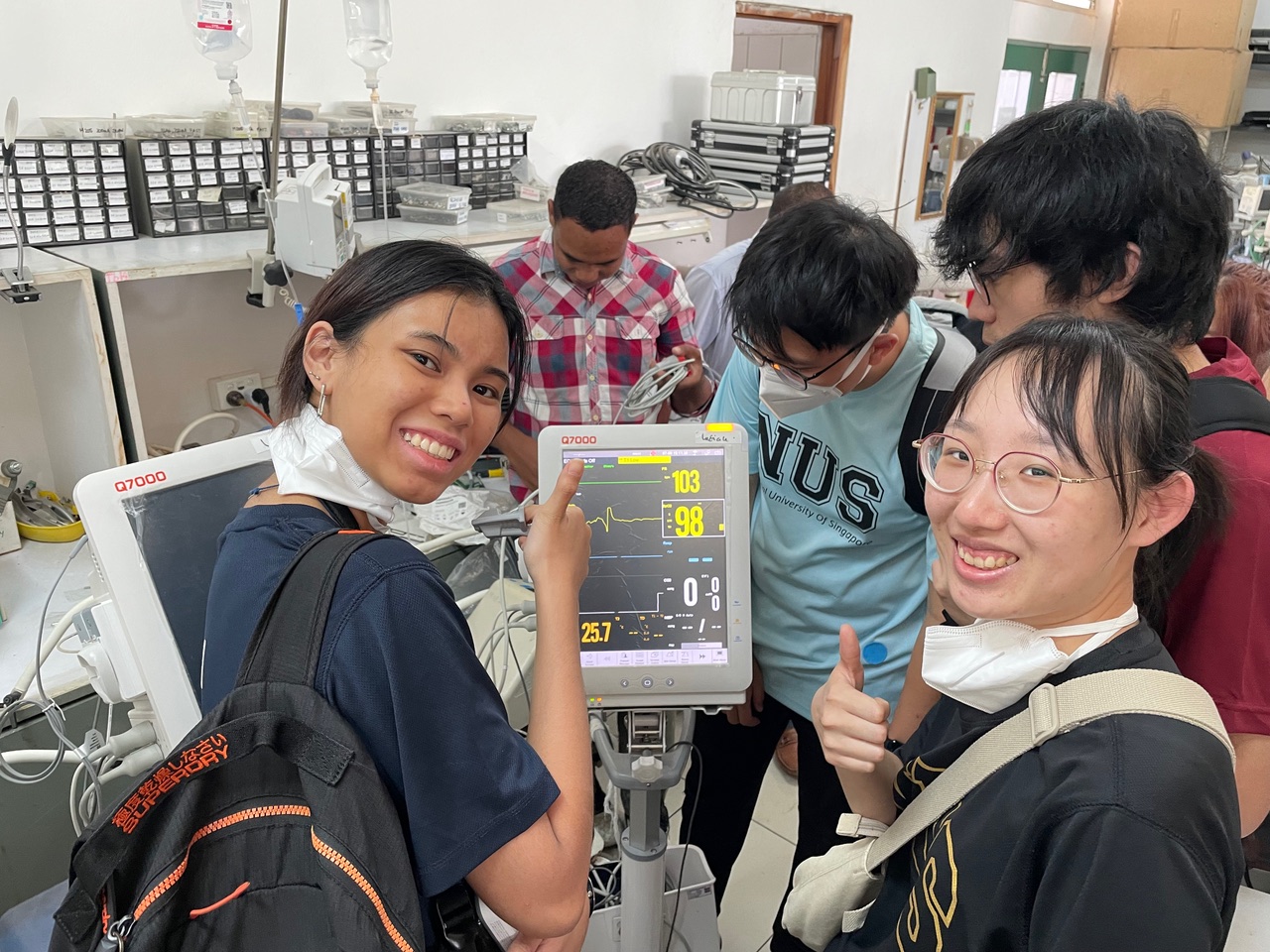
When speaking with the healthcare workers at Guido Valadares National Hospital, the students learned that many medical devices were not functioning properly. As much of this equipment was donated from other countries, this illustrated an engineering gap between international organizations and conditions in Timor-Leste.
Digital thermometers, for example, are powered by button cell batteries, which are not readily available in Timor-Leste. Subsequently, these digital thermometers are often rendered useless once their power runs out due to the lack of replacement batteries. Noting this gap, BME student Gabriel Wong was inspired to come up with a sustainable solution to power these thermometers using AA or AAA batteries, which are much more common in Timor-Leste.

To address this, he set out to create a gadget that would adapt devices to commonly available battery sizes and designed it to be as user-friendly as possible to reduce the chances of failure. His solution, AAAdapt, involves the use of a modular battery pack which helps to adapt. odd sized batteries to the more commonly available connect the AA or AAA sized batteries. Gabriel added, “At its core, AAAdapt comprises battery units which can be daisy chained to increase the output voltage depending on the device's requirements. The daisy chaining method was carefully designed using magnets to allow modules to simply snap together, removing the need for potentially confusing wiring connections.”
Asst Prof Holle, Assoc Prof Corrias and the students also had an opportunity to meet with the Timor-Leste Ambassador to Singapore, His Excellency Alexandre Tilman, at the Embassy of the Democratic Republic of Timor-Leste. There they shared about their experiences in Timor-Leste and discussed how they can further expand the programme to potentially include future collaborations with the Timorese universities. Ambassador Tilman added, “I would be happy to work with you and keep you informed if the opportunities to collaborate come up and have a stronger linkage to your school here, whether it’s scholarships, exchanges.. I am keen to work together.”

Year 4 student Swathi Kumar also presented her healthcare solution to Ambassador Tilman. Noting the scarcity of locally produced wound dressings in Timor-Leste, Swathi and her teammate, Lakshmi Sujeesh, had created a Kasugel (healing gel) out of the natural components of seaweed, using minimal laboratory equipment to replicate the conditions back there. Wanting to make the Kasugel as accessible as possible, Swathi leveraged the abundance of seaweed in Timor-Leste to create the gel.
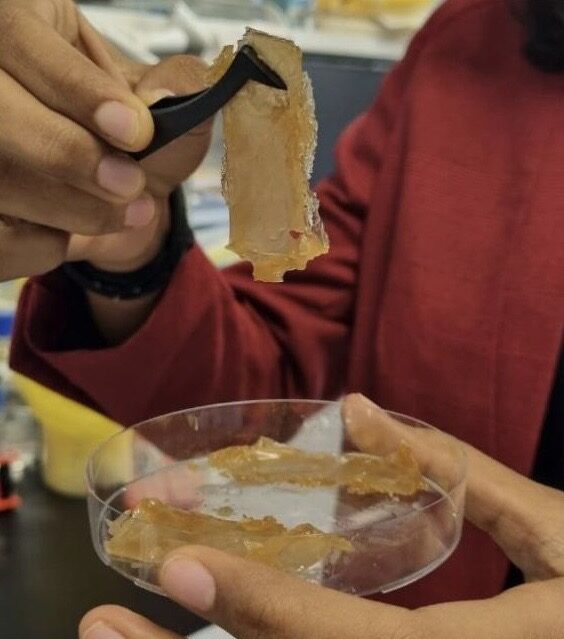
Impressed with her solution, Ambassador Tilman gave his input on how she could expand her solution and make it more practical. “It felt good to get some feedback on our one-semester long work that we worked on. Hearing about how else to make it more practical was helpful for me and the other students to think about the project in the long-term aspect,” said Swathi.



